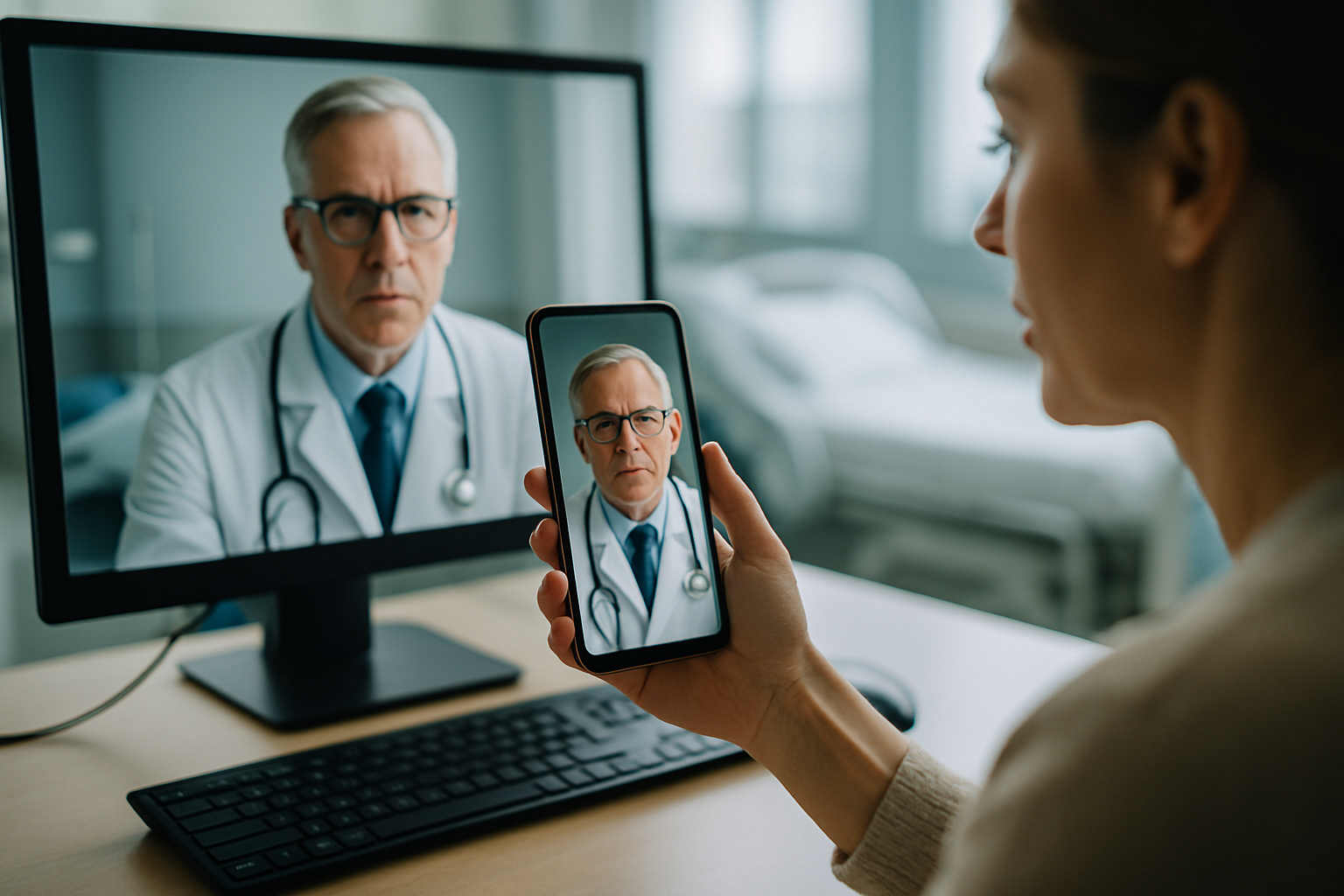Using Telehealth Wisely: What to Expect
Telehealth can simplify access to care, offering convenient video or phone consultations for many common concerns. Knowing what to expect before, during, and after a virtual visit helps you get the most from the encounter, including clear communication about symptoms, next steps for screening, and practical prevention measures.

This article is for informational purposes only and should not be considered medical advice. Please consult a qualified healthcare professional for personalized guidance and treatment.
How telemedicine visits work
Telemedicine appointments usually begin with scheduling and instructions on technology: a secure platform link, any forms to complete, and whether to use video or phone. During the visit a clinician will review your history, current symptoms, and medications, then ask targeted questions and observe visual cues when video is available. Expect the provider to explain diagnosis possibilities, recommend tests or screenings if needed, and outline follow-up options. Privacy, documentation, and options for in-person referral should be discussed.
Screening and prevention in telehealth
Remote consultations can support screening and prevention by identifying risk factors and prioritizing necessary tests. Providers can assess screening histories—such as blood pressure checks, cancer screening status, or vaccinations—and advise which should be scheduled in person. Prevention counseling for chronic conditions, immunizations, and lifestyle risk reduction is commonly offered. If physical exams or lab tests are needed, the clinician will arrange referrals or local testing centers and explain how results will be communicated.
Nutrition and hydration advice
Telehealth is well suited for practical guidance on nutrition and hydration, particularly for general wellbeing and managing chronic issues. Clinicians and dietitians can review dietary patterns, portioning, meal timing, and fluid intake, offering tailored suggestions for improving nutrient balance and preventing dehydration. Expect goal-setting conversations and simple monitoring plans. For complex needs—such as severe malnutrition, eating disorders, or specialized therapeutic diets—remote advice is useful but often followed by in-person or specialist referral.
Sleep and exercise guidance
Conversations about sleep and physical activity are routine in virtual care. Providers can screen for common sleep problems, discuss sleep hygiene, and suggest behavioral strategies or tracking methods. Exercise recommendations typically consider current fitness, mobility, and any medical limits; clinicians may propose safe routines, progression plans, and ways to measure activity. Telehealth supports ongoing coaching and accountability while identifying when an in-person evaluation or physical therapy referral is appropriate.
Managing stress and using mindfulness
Telemedicine visits frequently address mental wellbeing, stress management, and mindfulness practices. Providers can assess stressors, screen for anxiety or depression, and suggest evidence-based skills such as breathing exercises, structured relaxation, and short mindfulness practices. Referrals to counseling or psychiatric care may be made when indicated. Remote care enables convenient follow-up to monitor progress and adjust strategies, while also highlighting safety planning and crisis resources if needed.
Immunity, prevention and longevity
Virtual care can reinforce prevention strategies that support immune health and long-term wellbeing. Clinicians discuss vaccination status, safe lifestyle habits—sleep, nutrition, hydration, regular moderate exercise—and chronic disease management that influences long-term outcomes. While telehealth can guide behaviors tied to immunity and longevity, some preventive measures require in-person delivery, like certain vaccines, thorough screenings, or diagnostic procedures. Providers should clarify what can be accomplished remotely and what needs face-to-face attention.
Conclusion Using telehealth wisely means preparing for technology and documentation, communicating clearly about symptoms and concerns, and understanding the limits of remote assessment. Telemedicine is powerful for education, prevention, and follow-up, but may be complemented by in-person screenings or specialist visits when physical exams, tests, or procedures are needed. Expect collaborative planning with your provider to balance convenience and clinical needs.






